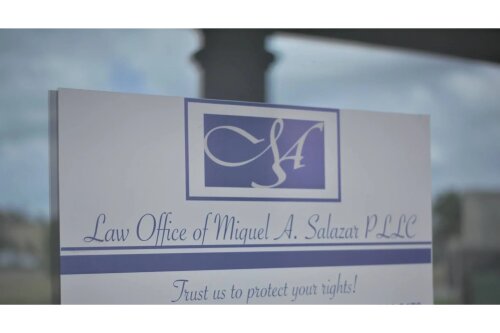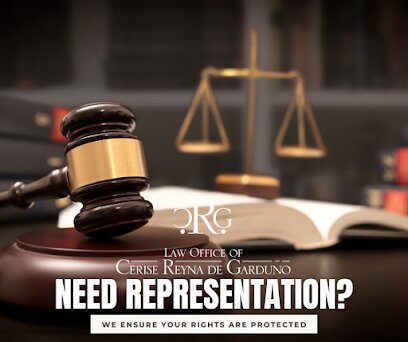Best Assault & Battery Lawyers in Brownsville
Share your needs with us, get contacted by law firms.
Free. Takes 2 min.
List of the best lawyers in Brownsville, United States
About Assault & Battery Law in Brownsville, United States
This guide focuses on Brownsville, Texas, United States. If you are in a different Brownsville, check your state and local law because definitions and procedures can differ. In Texas the criminal law typically uses the term "assault" to cover a spectrum of conduct that in other states may be split into "assault" and "battery." Assault generally includes causing bodily injury, threatening imminent harm, or making offensive physical contact. Penalties range from misdemeanor sanctions to serious felony sentences depending on injury, use of a weapon, the victim's status, and other aggravating factors.
Why You May Need a Lawyer
Assault cases can have serious short-term and long-term consequences - criminal penalties, fines, immigration impacts, employment problems, and civil liability. You may need a lawyer if you are:
- Arrested or formally charged with assault or a related offense.
- A victim seeking protection, restitution, or information about pressing charges.
- Facing enhanced charges because of a weapon, serious bodily injury, or a protected victim such as a police officer or family member.
- Accused in a domestic incident where protective orders and child custody issues may follow.
- Concerned about self-defense or defense-of-others claims and how to present them to police and prosecutors.
- Dealing with potential immigration consequences if you are not a U.S. citizen.
- Considering a civil suit for damages, or defending against a civil claim for battery or intentional infliction of harm.
- A juvenile charged with assault and needing specialized advocacy in juvenile court.
Local Laws Overview
Key local and state points to understand in Brownsville and Cameron County:
- Texas terminology - Texas Penal Code broadly defines assault and includes conduct that other states may call battery. The statute covers causing bodily injury, threatening harm, and offensive contact.
- Degrees and penalties - Assault can be charged as a Class C misdemeanor in minor cases, a Class A or B misdemeanor for greater harm or threats, and as a felony for serious bodily injury, use of a deadly weapon, or certain protected victims. Aggravated assault elevations carry stiffer punishments.
- Domestic or family violence - Incidents between current or former intimate partners or family members often trigger family-violence designations, which affect charging, bail, and protective-order procedures.
- Arrest and charging - Local police and the Cameron County prosecutor decide arrests and charges based on probable cause and the facts presented. In many situations, law enforcement may make an arrest at the scene if there is probable cause.
- Protective orders - Victims can seek protective orders or temporary injunctions through local courts to restrict contact and provide immediate safety measures.
- Civil remedies - Independent of criminal prosecution, victims can bring civil suits for battery, assault, and related torts to recover medical costs, lost wages, pain and suffering, and punitive damages in appropriate cases.
- Evidence and procedures - Video, medical records, witness statements, and police reports are critical. Local prosecutors and defense attorneys handle discovery, hearings, plea negotiations, and trials in municipal, county, or state district courts depending on the charge level.
- Local agencies - Cases are prosecuted by the Cameron County District Attorney's Office. Law enforcement includes the Brownsville Police Department and the Cameron County Sheriff´s Office. Victim-witness units and local court staff can assist with practical steps and filings.
Frequently Asked Questions
What is the difference between assault and battery in Brownsville?
In Texas the common statutory term is "assault," which covers conduct that many other states separate into assault and battery. That means threats, attempts to cause harm, and causing physical contact or injury are often charged under assault statutes. A civil claim may still be called battery in tort practice.
What penalties could I face for an assault charge?
Penalties depend on the nature of the offense. Minor assault matters may be misdemeanors with fines and jail time. Aggravated or serious assaults are felonies with potential prison sentences, substantial fines, and long-term collateral consequences. The exact range depends on the facts, prior record, and whether a weapon or serious injury was involved.
Can I be charged if I acted in self-defense?
Self-defense can be a valid legal defense if you reasonably believed force was necessary to protect yourself or others from imminent harm. The reasonableness of your belief and the proportionality of your response are key. You should speak with a lawyer promptly to preserve evidence and present the defense effectively.
Will the victim's cooperation determine whether charges proceed?
Victim statements are important but prosecutors decide whether to file or continue charges based on evidence and public-safety considerations. A victim asking the prosecutor to drop charges does not automatically prevent prosecution. Conversely, lack of victim cooperation can make conviction harder but does not guarantee dismissal.
Can I get a protective order if I am being threatened?
Yes. Victims of family violence, dating violence, stalking, or sexual assault can seek civil protective orders from the court. Emergency or temporary orders may be available quickly, and violations of these orders can lead to criminal penalties.
What should I do immediately after an assault, whether I am a victim or accused?
If you are a victim, get to safety, seek medical attention, preserve evidence (do not wash clothing or wounds), document injuries with photos, and report to law enforcement when possible. If you are accused, exercise your right to remain silent, do not argue with the police, and ask for a lawyer before answering questions. In both cases, contact an attorney as soon as possible.
Can assault charges affect immigration status?
Yes. Criminal convictions, and in some cases even certain arrests or allegations, can have immigration consequences including deportation, inadmissibility, or denial of naturalization. Noncitizens should consult an attorney with both criminal and immigration expertise promptly.
What is aggravated assault?
Aggravated assault generally involves enhanced conduct such as causing serious bodily injury, using or exhibiting a deadly weapon, or assaulting certain protected categories like public servants. Aggravated assault is usually charged as a felony with heavier penalties.
Can assault charges be expunged or sealed?
Expunction or record-sealing rules vary by jurisdiction and depend on the outcome of the case, the offense level, and prior record. Some arrests or dismissed charges may be eligible for expunction, while convictions are harder to clear. Talk to a local criminal defense attorney or legal aid to explore options.
How can a lawyer help my assault case?
A lawyer can explain applicable law, evaluate the evidence, handle communications with police and prosecutors, negotiate plea agreements, represent you at hearings and trial, protect your constitutional rights, establish defenses like self-defense, and advise about civil exposure and immigration impact.
Additional Resources
Local and statewide resources that can be useful:
- Brownsville Police Department - for reporting incidents and obtaining police reports.
- Cameron County Sheriff´s Office - for county-level law enforcement matters.
- Cameron County District Attorney's Office - for information on prosecution, victim-witness services, and charging decisions.
- Local courts in Cameron County - for information on filings, protective orders, and court calendars.
- Texas RioGrande Legal Aid - provides civil legal assistance in South Texas and may help with protective orders, family law, and some post-conviction issues.
- Texas Council on Family Violence and local domestic violence shelter programs - for safety planning and support services.
- National Domestic Violence Hotline - national resource for crisis support and referrals.
- State Bar of Texas Lawyer Referral Service - to find a qualified criminal defense attorney or family law lawyer.
- Local victim services programs and court victim-witness units - to obtain information about restitution, protective orders, and rights as a victim.
Next Steps
If you need legal assistance in Brownsville for an assault or battery matter, consider these steps:
- Prioritize safety - if you are in danger, call local law enforcement or go to a safe location.
- Preserve evidence - take photographs, save clothing, keep medical records, and note witness names and contact information.
- Do not admit guilt or provide detailed statements without consulting a lawyer.
- Obtain a copy of any police report and read it carefully.
- Contact an experienced criminal defense attorney if you are charged, arrested, or worried about potential charges. If you cannot afford one, ask about public defender or court-appointed counsel at your first court appearance.
- If you are a victim, contact the prosecutor's victim-witness unit or a local victim services organization for help with protective orders, safety planning, and compensation options.
- Ask potential attorneys about their experience with assault and family-violence cases in Cameron County, likely strategies for your situation, fee structure, and expected timeline.
- Keep records of all communications, court dates, and receipts for expenses related to the incident.
Every case is different. This guide provides a general overview and practical next steps, but it is not a substitute for legal advice. For guidance tailored to your situation contact a local attorney or legal aid organization as soon as possible.
Lawzana helps you find the best lawyers and law firms in Brownsville through a curated and pre-screened list of qualified legal professionals. Our platform offers rankings and detailed profiles of attorneys and law firms, allowing you to compare based on practice areas, including Assault & Battery, experience, and client feedback.
Each profile includes a description of the firm's areas of practice, client reviews, team members and partners, year of establishment, spoken languages, office locations, contact information, social media presence, and any published articles or resources. Most firms on our platform speak English and are experienced in both local and international legal matters.
Get a quote from top-rated law firms in Brownsville, United States — quickly, securely, and without unnecessary hassle.
Disclaimer:
The information provided on this page is for general informational purposes only and does not constitute legal advice. While we strive to ensure the accuracy and relevance of the content, legal information may change over time, and interpretations of the law can vary. You should always consult with a qualified legal professional for advice specific to your situation.
We disclaim all liability for actions taken or not taken based on the content of this page. If you believe any information is incorrect or outdated, please contact us, and we will review and update it where appropriate.











